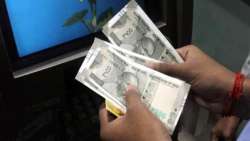After RBI adds NPR to KYC papers, panic withdrawal from Central Bank of India's branch
The Reserve Bank of India (RBI) included the National Population Register (NPR) letter as an officially valid document (OVD) for Know Your Customer (KYC) verification for opening bank accounts or applying for credit cards. RBI's decision has triggered panic in Central Bank of India's branch in Thoothukkudi, Tamil Nadu.

The Reserve Bank of India (RBI) included the National Population Register (NPR) letter as an officially valid document (OVD) for Know Your Customer (KYC) verification for opening bank accounts or applying for credit cards. RBI's decision has triggered panic in Central Bank of India's branch in Thoothukkudi, Tamil Nadu.
The local branch of Central bank put out an advertisement on January 11 that called for mandatory submission of National Population Registry letter as part of its Know Your Customer or KYC, following the RBI decision. Soon after the bank put out an ad, hundreds of customers in Kayalpattinam village reached the bank branch to withdraw their money.
According to reports, around Rs 4.5 crore cash, large deposits in savings bank accounts were withdrawn in panic from the Kayalpattinam branch of the Central Bank of India in Tamil Nadu's Tuticorin district since Saturday.
Speaking to Indian Express, R L Nayak, assistant general manager handling public relations for Central Bank of India. said what happened at Kayalpattinam was unfortunate. “People must have mistaken…If someone has an Aadhaar card, that is enough for KYC…If one has a PAN card, we will ask for a second document for address proof. So normally we collect two documents from those who do not have Aadhaar. The number of documents usually considered for KYC verification is half a dozen, including PAN card, passport, voter identity card, driving licence, National Rural Employment Guarantee Act card and Aadhaar. After RBI included NPR letter in the list recently, we had to add it in our advertisement as we cannot deny that in case someone comes with an NPR letter,” he said.